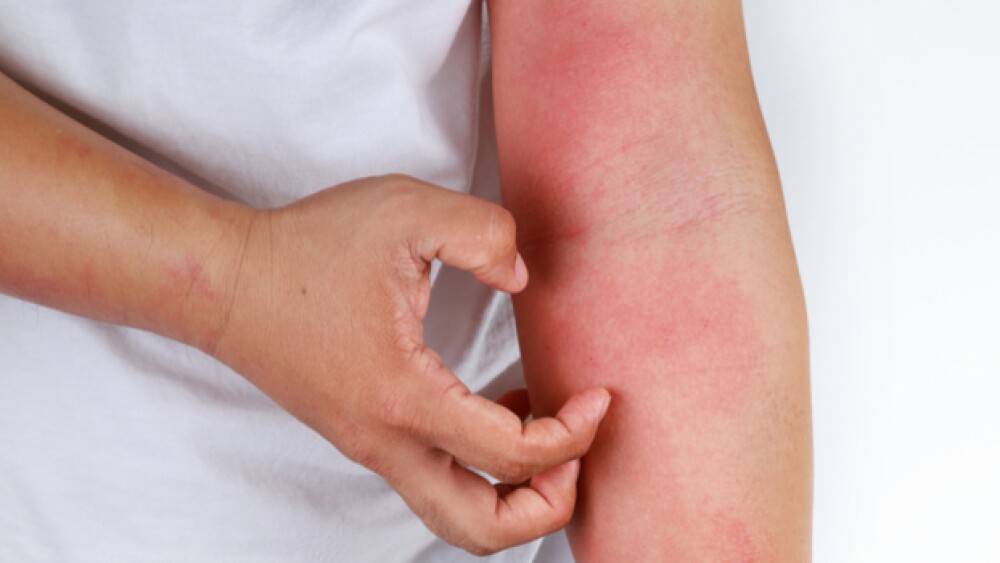Pfizer announced positive top-line results from the first trial in May.
Pfizer’s oral Janus kinase 1 (JAK1) inhibitor, abrocitinib hit its primary endpoint in a second Phase III study in patients 12 and older with moderate to severe atopic dermatitis. Pfizer announced positive top-line results from the first trial in May.
JADE MONO-2 was a randomized, double-blind, placebo-controlled, parallel-group study designed to evaluate the efficacy and safety of once-daily 00 mg and 200 mg doses of abrocitinib monotherapy over the course of 12 weeks. Consistent with the earlier JADE MONO-1 trial, Pfizer said results showed that by week 12 the percentage of patients achieving each co-primary efficacy endpoint and each key secondary endpoint with either dose of abrocitinib was statistically significantly higher than placebo. In addition, a statistically significant number of patients achieved a reduction in pruritus by week two, as measured by a four-point or larger reduction in itch severity measured with the pruritus numerical rating scale. Full data from both the JADE MONO-1 and JADE MONO-2 trials will be presented next month at a scientific meeting in Europe.
Michael Corbo, Pfizer’s chief development officer of inflammation and immunology, said the findings from the JADE MONO-2 trial add to the growing body of evidence supporting abrocitinib’s potential to improve the lives of people living with atopic dermatitis.
“We look forward to continued findings from the JADE program, with results from the next abrocitinib efficacy study, using an active control, becoming available in spring 2020. This will further our understanding of abrocitinib as a potential medicine for patients who suffer from this chronic condition,” Corbo said in a statement.
Abrocitinib is an oral small molecule that selectively inhibits Janus kinase (JAK) 1. Inhibition of JAK1 is thought to modulate multiple cytokines involved in pathophysiology of AD, including interleukin (IL)-4, IL-13, IL-31, and interferon gamma. JAK pathways are linked to inflammatory processes and are implicated in signaling for over 50 cytokines and growth factors. Abrocitinib received Breakthrough Therapy designation from the U.S. Food and Drug Administration for the treatment of patients with moderate to severe atopic dermatitis in February 2018.
Atopic dermatitis is a chronic skin disease characterized by inflammation of the skin and skin barrier defects. Atopic dermatitis is characterized by redness, itching, induration and oozing. It is one of the most common, chronic, relapsing childhood dermatoses, affecting up to 10% of adults and up to 20% of children worldwide.
For the JADE MONO-2 trial, a total of 391 subjects were randomized to receive either dose of abrocitinib and placebo in the trial. Randomization was stratified by baseline disease severity and age. The co-primary study endpoints in JADE MONO-2 were the proportion of patients who achieved an Investigator Global Assessment score of clear or almost clear skin and two-point or greater improvement; and the proportion of patients who achieved at least a 75% or greater change from baseline in their Eczema Area and Severity Index score. The key secondary endpoints were the proportion of patients achieving a four-point or larger reduction in itch severity.
Safety results showed that both doses of abrocitinib were well-tolerated and were broadly consistent with JADE MONO-1.





